Ethical hacking is growing fast in the tech world. A MarketsandMarkets report shows it could hit $32.0 billion by 2025. Meanwhile, Java is a top choice for developers, with over 9 million using it worldwide. Choosing between these two paths can be tough if you’re eyeing a tech career.
We’ll look at ethical hacking versus Java as careers. You’ll learn about the needed skills, growth potential, and job chances in each area. By the end, you’ll know which career could be your best fit.
Key Takeaways:
- Ethical hacking and Java are top career choices in technology.
- Ethical hacking checks computer systems for weak spots to keep data safe.
- Java is a popular language for creating software.
- Ethical hacking is known for specialized work and the possibility of high earnings, while Java offers a wider range of jobs and chances to grow.
- When picking a tech career, think about your skills, what you enjoy, and what you want from your job.
What is Ethical Hacking?
Ethical hacking involves professionals who test systems to find vulnerabilities. It’s a security test that looks for flaws. This is to stop attacks.
These hackers stick to ethics, only working on systems with permission. Their aim is to protect data from real attackers.
Ethical hackers use techniques and tools to mimic cyberattacks. They find weaknesses in network infrastructures, web apps, and software. This ensures security measures are strong.
“Ethical hackers play a crucial role in safeguarding computer systems and networks from malicious hackers. By understanding the techniques used by attackers, they can better defend against potential threats.”
Ethical hacking keeps computer security strong. As technology grows, so do vulnerabilities. It’s key to find these weaknesses early to protect sensitive information and systems.
The Importance of Ethical Hacking
With more cyberattacks and lots of data stored electronically, strong security is essential. Ethical hacking helps by finding vulnerabilities. This prevents unauthorized access and data breaches.
The Process of Ethical Hacking
Ethical hackers have a method for security checks. This includes:
- Reconnaissance: Gathering information about the target.
- Scanning: Identifying open ports, services, and weaknesses.
- Enumeration: Gathering more details about the targets.
- Vulnerability Assessment: Finding and documenting vulnerabilities.
- Exploitation: Trying to exploit weaknesses to gain access.
- Post-Exploitation: Understanding the access level and possible damage.
- Reporting: Writing down findings and suggesting fixes.
| Ethical Hacking | Computer Security | Vulnerabilities |
|---|---|---|
| Identifies and fixes flaws | Protects data | Prevents reputational damage |
| Adheres to ethics | Proactive approach | Safeguards systems and networks |
| Simulates real-world attacks | Ensures adequate security | Maintains integrity |
What is Software Engineering?
Software engineering uses programming to build software that works well. It combines coding skills with engineering principles. This blend helps create software that is reliable and efficient. The work includes writing code, testing it, and managing the software’s development. This ensures it meets the user’s needs and follows industry standards.
There are different areas within software engineering:
- Programming – Using languages like Java, C++, and Python, software engineers write the software’s code.
- Software Development – Engineers use organized methods like Agile or Waterfall. This helps in planning, designing, implementing, and maintaining software.
- Problem-solving – They tackle complex issues and design solutions. These meet business needs and improve user experience.
- Quality Assurance – Engineers test software to find and fix bugs. Their goal is to make sure the software runs smoothly.
- Software Architecture – Engineers plan the software’s structure. They create blueprints to guide development.
Software engineers work with others, like product managers and designers. Being good at communication and teamwork is key.
“Software engineering is a dynamic field. It needs technical skills, problem-solving abilities, and a love for making new software.” – John Smith, Senior Software Engineer
The Software Engineering Lifecycle
The engineering process follows a set lifecycle, with these steps:
- Requirements Gathering – Working with stakeholders to list what the software should do.
- Design – Making a detailed plan based on these requirements. This includes the software’s parts, databases, and interfaces.
- Implementation – Writing code and building the software as planned.
- Testing – Checking for any problems or bugs in the software. This involves various testing methods.
- Deployment – Once tested, the software is launched for users.
- Maintenance – Continual updates and support keep the software current and safe.
During this lifecycle, engineers use many tools and resources. This makes the development smoother and more efficient.
The Role of Software Engineers
Software engineers are vital in many sectors, like tech, finance, and healthcare. They are responsible for:
- Creating and crafting software apps
- Working with different teams to outline software needs
- Writing clear and effective code
- Finding and fixing any software issues
- Reviewing code and following best practices
- Keeping documents updated and helping users
Great software engineers always learn about new trends. They use new tech and methods to make top-notch software.
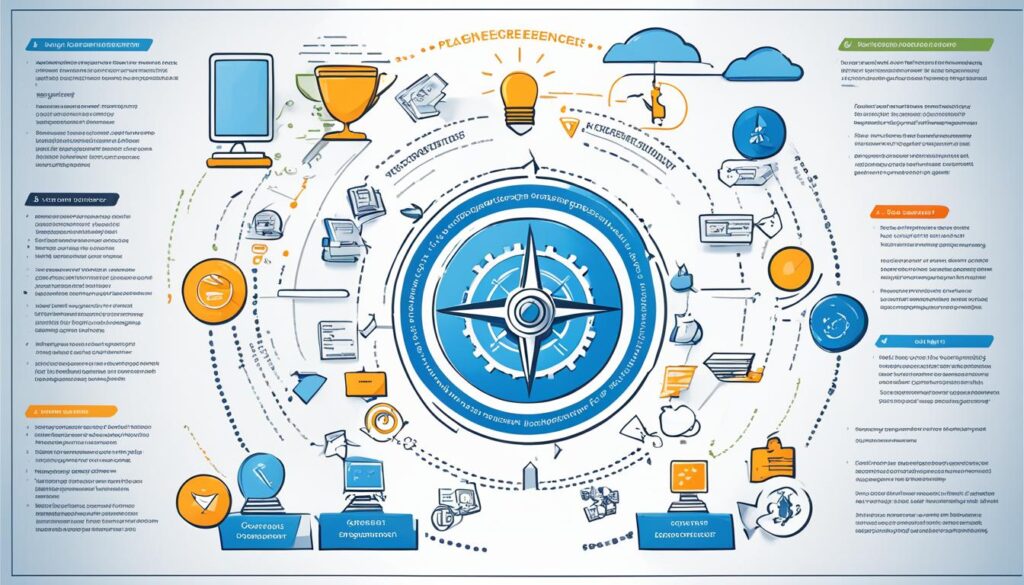
| Software Engineering | Ethical Hacking |
|---|---|
| Focuses on software development | Focuses on identifying vulnerabilities |
| Combines programming and engineering skills | Requires technical knowledge in hacking techniques |
| Emphasizes coding, testing, and quality assurance | Emphasizes network security and penetration testing |
| Works in cross-functional teams | Often works independently or in small teams |
| Offers diverse job opportunities in various industries | Has limited job opportunities |
The Differences Between Ethical Hacking and Software Engineering
Ethical hacking and software engineering are quite different. They focus on unique skills and goals. Knowing these differences helps you choose your career path wisely.
Scope and Focus
Ethical hacking is about finding system weaknesses. Also known as penetration testers, ethical hackers aim to improve security. They seek to protect data from cyber threats.
Software engineering, however, involves creating software. Engineers design and maintain applications that users need. Their goal is to make software that works well and is reliable.
Approach and Methodology
Ethical hackers use various techniques and tools to spot vulnerabilities. They might scan networks or check codes for issues. They follow strict rules to stay ethical and legal.
Software engineers blend technical and interpersonal skills. They use programming languages to build software. Their work follows engineering principles to meet user needs.
Collaboration and Autonomy
Software engineers often work in teams. They collaborate with others to solve problems and deliver projects. Teamwork is key in this field.
Ethical hackers usually work alone, although they may team up with security staff. They enjoy more freedom in how they work. This allows for more independent decision-making.
Skills and Expertise
Both fields require solid technical knowledge. Yet, the skills each job needs are different.
Ethical hackers must understand computer networks and security well. They need programming skills and a meticulous eye for spotting issues. Critical thinking is crucial for them.
Software engineers need to be proficient in coding languages like Java or C++. They must grasp complex coding and problem-solving. Attention to detail is vital for their success.
In conclusion, ethical hacking and software engineering serve distinct purposes. Ethical hacking focuses on system security, often working solo. Software engineering is about building software, typically in a team setting.
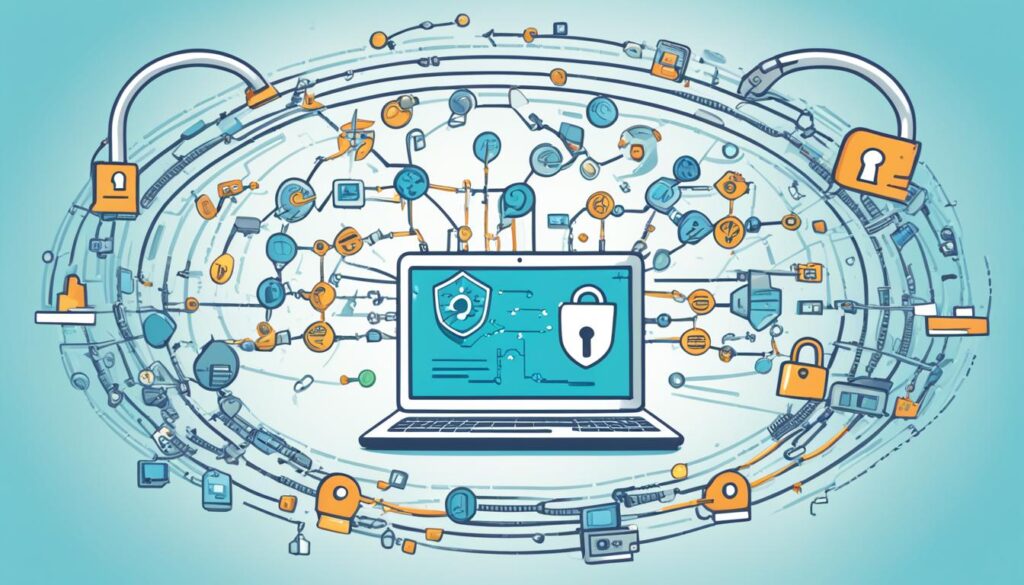
Continuing, we will look at the specific skills and qualifications needed in both these careers.
Skill Sets and Qualifications
If you want to shine in ethical hacking or software engineering, you’ll need certain skills. Let’s look at what you must have for each area.
Ethical Hacking
To be a good ethical hacker, knowing a lot about computer networks and how computers are built is key. You should be really good at using Linux or macOS. Also, being skilled with hacking tools is important for finding security weaknesses.
It helps a lot if you know scripting languages like Python. This makes it easier to automate tasks and do penetration tests well.
Software Engineering
For software engineers, being able to program is crucial. You need to be good at languages like Java or C++ to create software products. It’s also very important to know about data structures and algorithms for writing efficient code.
Using development tools like IDEs and debuggers is a must for building software. These tools help a lot during the software creation process.
Both paths require a solid understanding of computer science and great problem-solving skills. Ethical hackers work on making systems secure by finding flaws. Software engineers work on all stages of making software, from the initial idea to releasing the product.
“The blend of technical knowledge and problem-solving skills is what makes a successful ethical hacker or software engineer.”
Comparison of Skill Sets
| Ethical Hacking | Software Engineering |
|---|---|
| Computer Networking | Programming Languages |
| Computer Architecture | Data Structures and Algorithms |
| Linux or macOS | Development Tools (IDEs, Debuggers) |
| Hacking Tools | Software Development Lifecycle |
| Scripting Languages (e.g., Python) |
Both career paths demand that you keep learning new things and keep up with tech changes. Being adaptable, good at solving problems, and loving technology are important for anyone wanting to enter these fields.
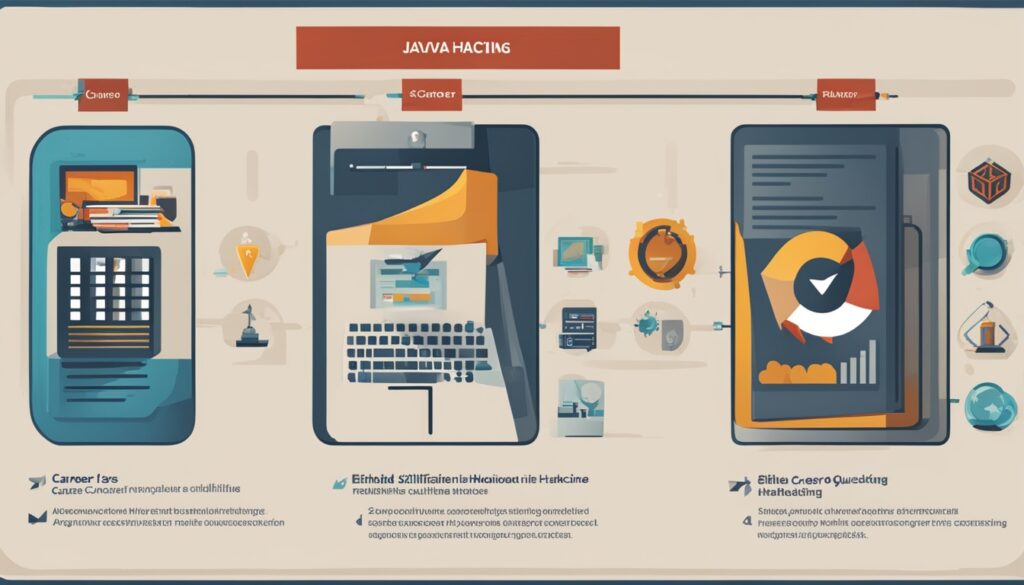
Job Opportunities and Salary
Are you thinking about a career in tech? It’s smart to look at the job scene and potential pay in your field first. Let’s dive into the chances and earnings you can expect in ethical hacking and software engineering.
Job Opportunities in Ethical Hacking
Jobs in ethical hacking are unique and not always easy to find. Often, a company might have just one ethical hacker, or none, based on their security needs. Despite this, the demand for ethical hackers is on the rise. Industries like finance, healthcare, and government are especially eager for their skills.
Ethical hacking is both rewarding and exciting for those who love computer security. These hackers are crucial in finding system flaws, helping keep sensitive info safe and blocking attacks.
If you’re top-notch in ethical hacking, many doors open for growth and progress. You might become a consultant or start a cybersecurity business. This field values specialized skills highly.
Job Opportunities in Software Engineering
Software engineering is bustling with jobs across all kinds of fields. Every sector needs software engineers to upgrade and maintain their digital tools. This means a vibrant market for talent, from big names to startups.
Software engineering keeps changing with new tech. As an engineer, you’ll tackle cool projects, meet varied teams, and invent in the digital world.
Jobs for software engineers span industries like tech, finance, healthcare, e-commerce, and gaming. You could work on the front end, back end, mobile apps, or systems design. Software engineering is full of paths to choose from.
Salary Expectations
Concerning pay, ethical hacking and software engineering both promise good salaries. But remember, your actual income can depend on things like your skills, where you are, and the type of company.
Sources say ethical hackers make between $49,000 and $142,000 a year, averaging about $92,000. Software engineers, meanwhile, can expect $60,000 to $180,000 yearly, based on their role and experience.
| Job Title | Salary Range (per year) |
|---|---|
| Ethical Hacker | $49,000 – $142,000 |
| Software Engineer | $60,000 – $180,000 |
However, these salaries can differ a lot because of factors like your location and the industry. Plus, as you become more skilled, you’re likely to earn more.
Knowing about job options and likely pay helps you pick the right career in technology. Whether it’s ethical hacking or software engineering, there’s much to look forward to.
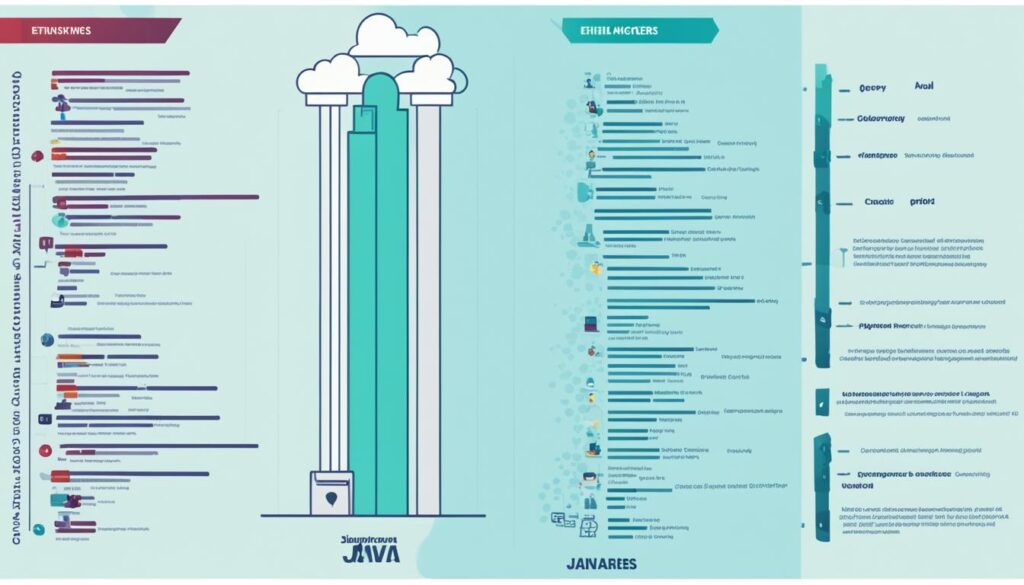
Which Career Path is Right for You?
Choosing between a career in ethical hacking and software engineering is hard. It depends on many things, like what you like, your skills, and what you want to achieve. Think about these points to figure out which path suits you best:
1. Autonomy vs. Teamwork
If you love working by yourself and leading your projects, consider ethical hacking. Ethical hackers work solo a lot. They check computer systems for weak spots. But, if you like working with others and value being part of a team, software engineering might be your calling. Software engineers work together with different teams to create and fix software.
2. Technical Background and Programming Skills
Both ethical hacking and software engineering need solid tech skills. Yet, the skills you need differ between these two. Ethical hacking is all about security. You need to know about networks, finding security issues, and the tools to test and break into systems. On the other hand, software engineering is focused on coding. Skills in languages like Java, C++, or Python are key. Pick a career that matches your tech skills and what you enjoy.
3. Job Growth and Demand
Think about job growth and how much demand there is for each career. Ethical hacking is more specialized, so jobs may be fewer than in software engineering. Even though we need more ethical hackers because of growing cyber threats, there might not be as many jobs as in software engineering. Software engineering has more jobs available and chances to grow because software developers are needed in many areas.
4. Salary
Salary is also key in choosing a career. Both ethical hackers and software engineers make good money, but average salaries can differ. Ethical hackers’ salaries range from $49,000 to $142,000 based on their experience and skills. Software engineers earn between $60,000 and $180,000, depending on experience, skills, and their specific field.
When deciding, think about how happy the job will make you, the chances to grow, and if it fits your long-term goals. Both ethical hacking and software engineering are rewarding careers. Choose the one that fits your skills, interests, and dreams the best.
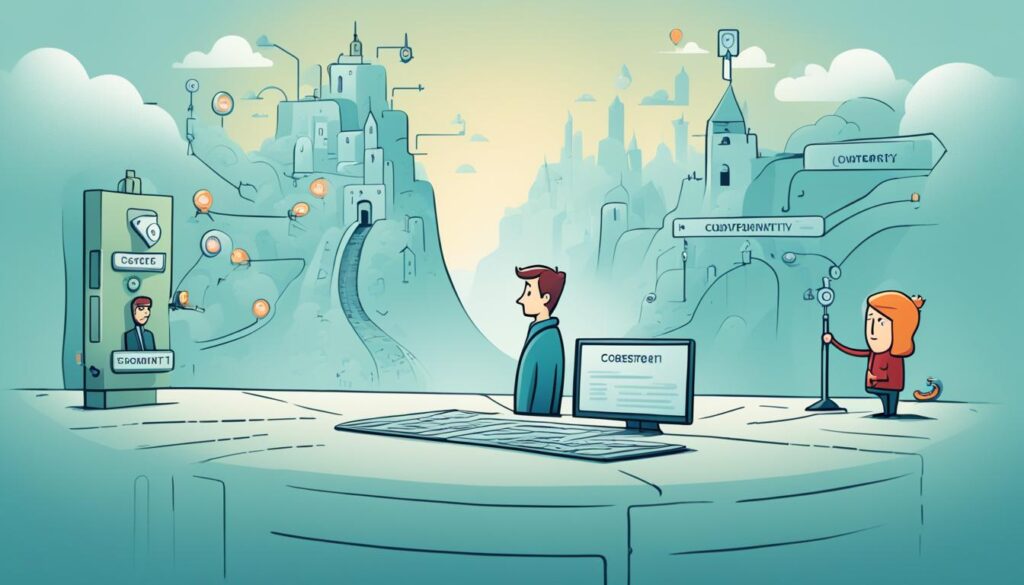
Conclusion
Looking into ethical hacking and software engineering shows they have different benefits. Both are important in today’s tech world.
Ethical hacking offers a chance to specialize and earn well. Ethical hackers protect data and stop harm. But, finding work may be tough.
In contrast, software engineering has more job chances and room for growth. Software engineers help make software that works well and is trusted.
Choosing between ethical hacking and software engineering depends on what you like and are good at. Think about what you want in your career and look at what’s happening in the industry. This will help you choose what fits your dreams.
Both paths need you to keep learning and stay up-to-date. Whether you go into ethical hacking or software engineering, keep improving your skills and growing.
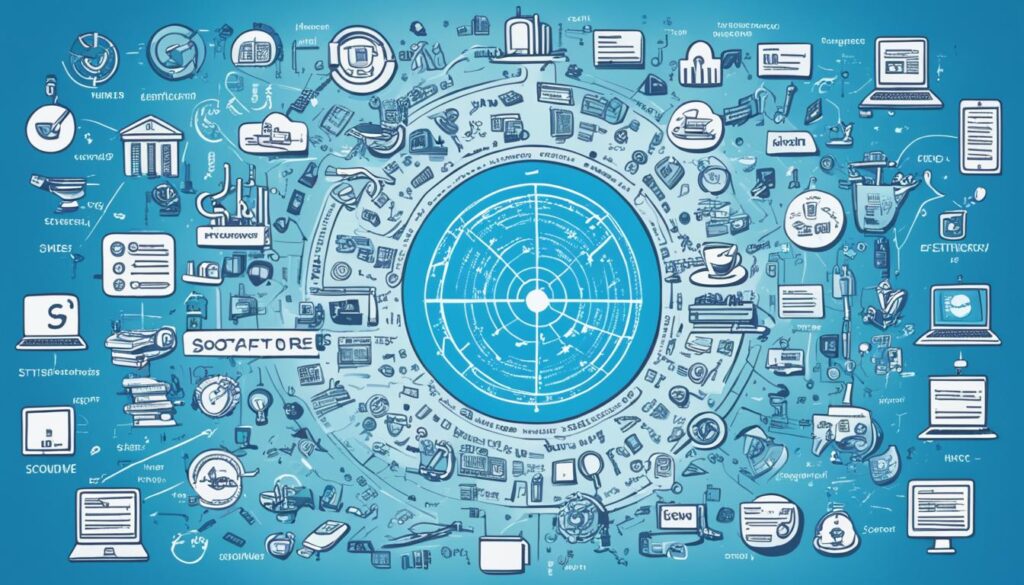
| Ethical Hacking | Software Engineering | |
|---|---|---|
| Specialization | ✔️ | ❌ |
| Potential for High Pay | ✔️ | ❌ |
| Job Opportunities | ❌ | ✔️ |
| Growth Potential | ❌ | ✔️ |
| Stability | ❌ | ✔️ |
Recommended Resources
If you are interested in ethical hacking or software engineering, here are resources to help:
- Online training programs for ethical hacking: Many online platforms offer courses in ethical hacking. You can find comprehensive courses on Udemy, Coursera, and Pluralsight. They cover from basic to advanced ethical hacking techniques.
- Books and tutorials on software engineering: There are many materials available for software engineering. “Clean Code” by Robert C. Martin and “Code Complete” by Steve McConnell are great books. Websites like Stack Overflow offer tutorials and coding advice.
- Career guidance websites and forums for industry insights: Keeping up with industry trends is key. LinkedIn and Glassdoor are great for networking and career advice. Reddit’s r/ethicalhacking or r/softwareengineering offer valuable discussions.
Keep learning and improving your skills in these fields. Use these resources to grow in your career.
FAQ
What is the difference between ethical hacking and software engineering?
What skills are required for ethical hacking and software engineering?
How many job opportunities are available in ethical hacking and software engineering?
What is the salary range for ethical hackers and software engineers?
How can I choose between a career in ethical hacking and software engineering?
What resources can I use to further explore ethical hacking and software engineering?
Source Links
- https://www.knowledgehut.com/blog/security/ethical-hacking-vs-software-engineering
- https://myturn.careers/blog/choose-the-right-career-cyber-security-vs-ethical-hacking/
- https://www.quora.com/What-career-path-should-I-choose-cybersecurity-ethical-hacking-or-development-I-am-more-of-an-expert-in-development-but-I-have-more-interest-in-hacking-1









